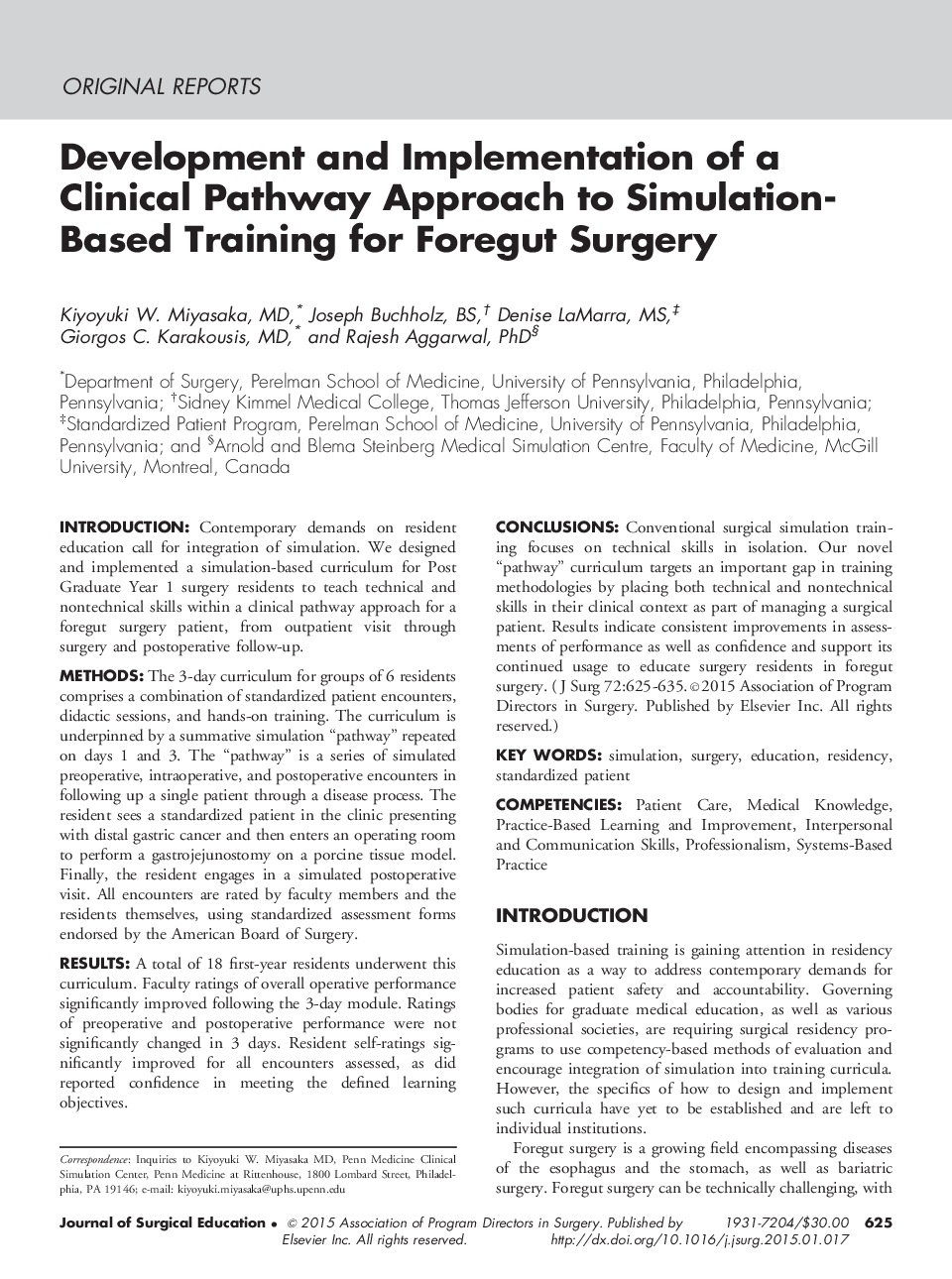| کد مقاله | کد نشریه | سال انتشار | مقاله انگلیسی | نسخه تمام متن |
|---|---|---|---|---|
| 4297700 | 1288329 | 2015 | 11 صفحه PDF | دانلود رایگان |
IntroductionContemporary demands on resident education call for integration of simulation. We designed and implemented a simulation-based curriculum for Post Graduate Year 1 surgery residents to teach technical and nontechnical skills within a clinical pathway approach for a foregut surgery patient, from outpatient visit through surgery and postoperative follow-up.MethodsThe 3-day curriculum for groups of 6 residents comprises a combination of standardized patient encounters, didactic sessions, and hands-on training. The curriculum is underpinned by a summative simulation “pathway” repeated on days 1 and 3. The “pathway” is a series of simulated preoperative, intraoperative, and postoperative encounters in following up a single patient through a disease process. The resident sees a standardized patient in the clinic presenting with distal gastric cancer and then enters an operating room to perform a gastrojejunostomy on a porcine tissue model. Finally, the resident engages in a simulated postoperative visit. All encounters are rated by faculty members and the residents themselves, using standardized assessment forms endorsed by the American Board of Surgery.ResultsA total of 18 first-year residents underwent this curriculum. Faculty ratings of overall operative performance significantly improved following the 3-day module. Ratings of preoperative and postoperative performance were not significantly changed in 3 days. Resident self-ratings significantly improved for all encounters assessed, as did reported confidence in meeting the defined learning objectives.ConclusionsConventional surgical simulation training focuses on technical skills in isolation. Our novel “pathway” curriculum targets an important gap in training methodologies by placing both technical and nontechnical skills in their clinical context as part of managing a surgical patient. Results indicate consistent improvements in assessments of performance as well as confidence and support its continued usage to educate surgery residents in foregut surgery.
Journal: Journal of Surgical Education - Volume 72, Issue 4, July–August 2015, Pages 625–635
